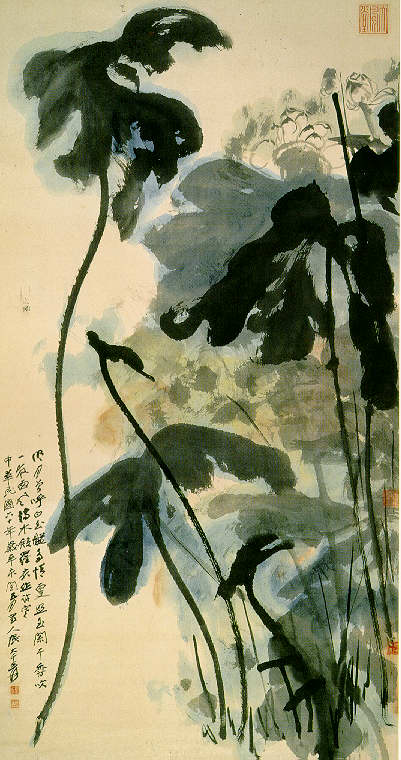
It was with slight reluctance that I agreed several weeks ago to write an essay on the subject of volunteerism. At the time my mind raced toward all of the various tasks that filled my "to do" list, such as teaching, research, writing and so forth. Naturally, I recognized the irony of the situation, and thus readily agreed, as I recognized my reluctance and mental calculation was a typical obstacle, in my case at least, to generosity in all of its forms, which of course includes donations of time as well as money. Nevertheless I did relegate this task to my "back burner," focusing instead on my various professional responsibilities. Yet being a teacher, my work invariably involves commitment of time to, ideally, help others, so the topic of volunteerism was not one that I could escape for long. It was, in fact, brought to the fore as I was teaching over the past week the Diamond Sutra, which is one of my favorite Buddhist scriptures. I love it in part because it is so direct and to the point, expressing in spare words key teachings which many other sutras address in a far more prolixic fashion.
The
Diamond Sutra, however, is also a demanding text; there has not yet been a time
in which, reading it closely, it has not challenged one of my comfortable assumptions
about myself, my life, and the spiritual path. Given the context at hand, I found
that it particularly challenged my settled notions concerning generosity and compassion.
The relevant passage is the fourth chapter, the first half of which I've translated
as follows:
"Moreover, Subhuti, the bodhisattva should practice generosity
without attachment to things. In other words, she should be generous without attachment
to the qualities of form, sound, scent, taste or touch. Subhuti! Thus the bodhisattva
should be generous without attachment to appearances. Why is this? If a bodhisattva
is generous without attachment to appearances, her merit is immeasurable."
What does this mean? I will not pretend to be able to give a definitive interpretation of a text as profound as the Diamond Sutra, a text which delights in the deconstruction of the "reality" which we imagine to underlie our deeply held convictions about ourselves and the world. It certainly can be taken as a critique of what we might loosely term "materialism," by which I mean our tendency to impute intrinsic reality status to both our "selves" and to the objects of our perception and cognition, and act as if they were independently existent entities. Insofar as we take serious account of these appearances, and form judgments about them, and base our practice of generosity upon such calculations, we are merely engaging in worldly generosity, and not the generosity of one aspiring to complete awakening, a bodhisattva. Our generosity and other spiritual practices can be worldly as well insofar as we engage in them with any sort of attachment, any sort of conviction of the independent existence of self or other.
The
re-emergence of attachment in our spiritual practice is something which has been
called "spiritual materialism." We vow to save limitless
sentient
beings but in so far as we objectify a single sentient being as an independently
existing entity we miss the point, and we miss it even more so if we start "keeping
count," so to speak, of our good deeds, as if a certain measurable amount
of merit was sufficient to reach Buddhahood. Perhaps it was precisely to avoid
such spiritual materialism that the author of this vow strategically inserted
the word "limitless" to help us avoid such a pitfall.
This
was precisely the point made by the Sixth Patriarch of the Chinese Chan school,
Master Hui-neng, who was an unrelenting critic of "spiritual materialism."
He taught in his Platform Sutra the following:
"In our daily life we should
always practice generosity, but spiritual achievement is not the result of giving
away money. Awakening (bodhi)
is only to be found in the mind, so what need
is there to seek abstrusity outside? Those who listen to this teaching and put
it into practice
will find that [Amitabha's] Western Paradise is in the here
and now."
He, of course, does
not say that we should not practice generosity at all, and we would be mistaken
if we interpreted the Diamond Sutra to mean this. But as Buddhists it is our responsibility
to diligently undermine attachment in all of its forms. We will only achieve this,
and be able to spontaneously manifest true generosity once we have realized the
emptiness of the intrinsic reality of all subjective and objective phenomena,
but until we achieve this we can and should engage in generosity, but as a true
spiritual exercise, in which we strive to cultivate and maintain mindfulness throughout
the act of giving our attention, time and resources, in order to ensure that our
motives are always pure and never selfish. Thereby our compassion and generosity
would not, ideally, be obstructed by any categorizations, and should be applied
not only to humans of whatever appearance, nationality or belief system but also
to other orders of sentient beings, such as animals and so forth. But for those
of us who are making novice attempts to generate the spirit of inconceivable liberation
it is of course fine to begin at home, with the people of our communities with
whom we interact on a regular basis. For if we cannot be compassionate and generous
in our own communities, it may be premature for us to concern ourselves with the
larger expanses of sentient existence.